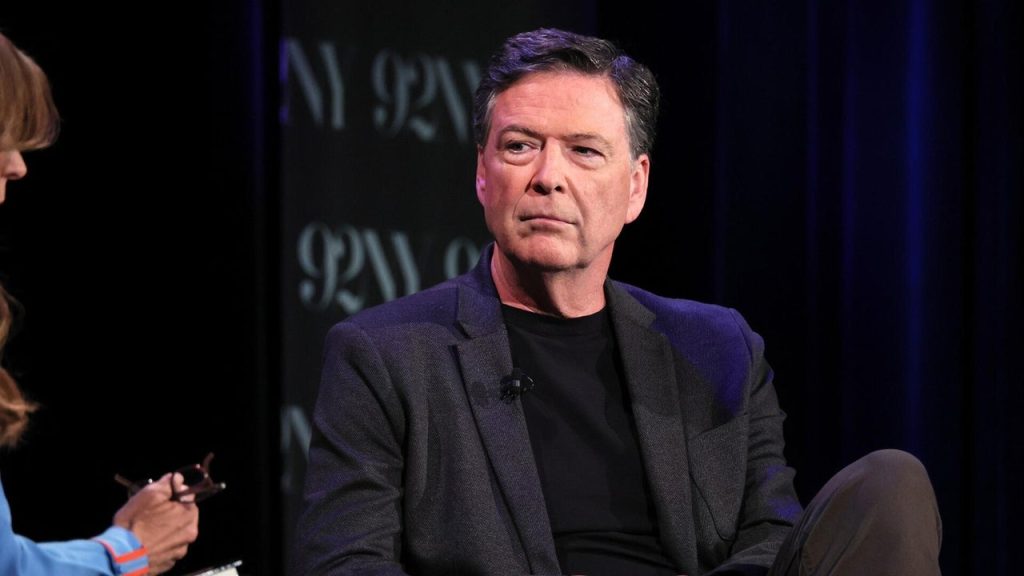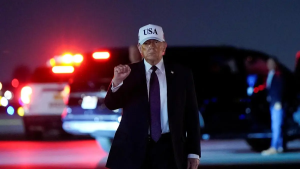Judge Allows DOJ to Challenge Grand Jury Records Release to Comey

A federal judge in Virginia has granted President Donald Trump’s Department of Justice additional time to contest the unusual disclosure of grand jury records to former FBI Director James Comey, temporarily pausing a ruling that sharply criticized prosecutors and investigators in the high-profile case.
U.S. District Judge Michael Nachmanoff intervened Monday evening to permit the Justice Department to submit objections before any grand jury material is handed over to Comey’s defense team. Nachmanoff’s order followed a same-day ruling by U.U. Magistrate Judge William Fitzpatrick that required prosecutors to provide audio and records from the hours leading up to the grand jury’s Sept. 25 indictment of Comey on two counts of obstruction and false statements tied to his 2020 congressional testimony.
In an emergency motion, prosecutors urged Nachmanoff to pause the handover, arguing that “the Magistrate Judge’s new order is contrary to law” and requesting that the government be allowed to object to the order, claiming Fitzpatrick “may have misinterpreted some facts he found when issuing the latest order.” Nachmanoff maintained Fitzpatrick’s order on paper but gave the government until Wednesday afternoon to file formal objections and Comey’s lawyers until Friday to respond before he decides whether to uphold, narrow, or reject the disclosure.
Fitzpatrick’s 24-page order described “a disturbing pattern of profound investigative missteps” and suggested the record could justify dismissing parts of the indictment, a remedy rarely seen in federal criminal cases. He criticized how the FBI handled attorney-client privilege in its “Arctic Haze” leak investigation, noting that agents executed four search warrants targeting Daniel Richman, Comey’s longtime friend and attorney, and that seized materials became “the cornerstone of the government’s grand jury presentation” even though one testifying agent had been exposed to potentially privileged information.
Fitzpatrick also faulted interim U.S. Attorney Lindsey Halligan for what he called “fundamental misstatements of the law” in her grand jury instructions. One redacted remark appeared to imply that Comey’s decision not to testify could be treated as a sign of guilt, which he said violated “a foundational rule of law.” Another comment “clearly suggested” jurors could assume the government had more evidence that would be presented at trial.
Requests for grand jury material of this scope are seldom granted, a point echoed in coverage by outlets including Reuters and The Washington Post, which described Fitzpatrick’s order as an extraordinary step to address potential “misconduct” in the Trump-era prosecution. Conservative legal commentators have responded by accusing the magistrate of favoring a prominent Trump critic.
Mike Davis, founder of the Article III Project and a Trump ally, wrote on X that “Magistrate Judge William Fitzpatrick, appointed by partisan DC-area Democrat judges in 2022, is going out of his way to carry water for James Comey” and that “through his highly irregular ruling” he is “grasping at straws” to claim Halligan did anything wrong. “The Justice Department must appeal this fact-free and lawless ruling by Fitzpatrick. The Deep State protects its own,” he added.
Jim Thomas is a writer based in Indiana. He holds a bachelor’s degree in Political Science, a law degree from U.I.C. Law School, and has practiced law for more than 20 years.




